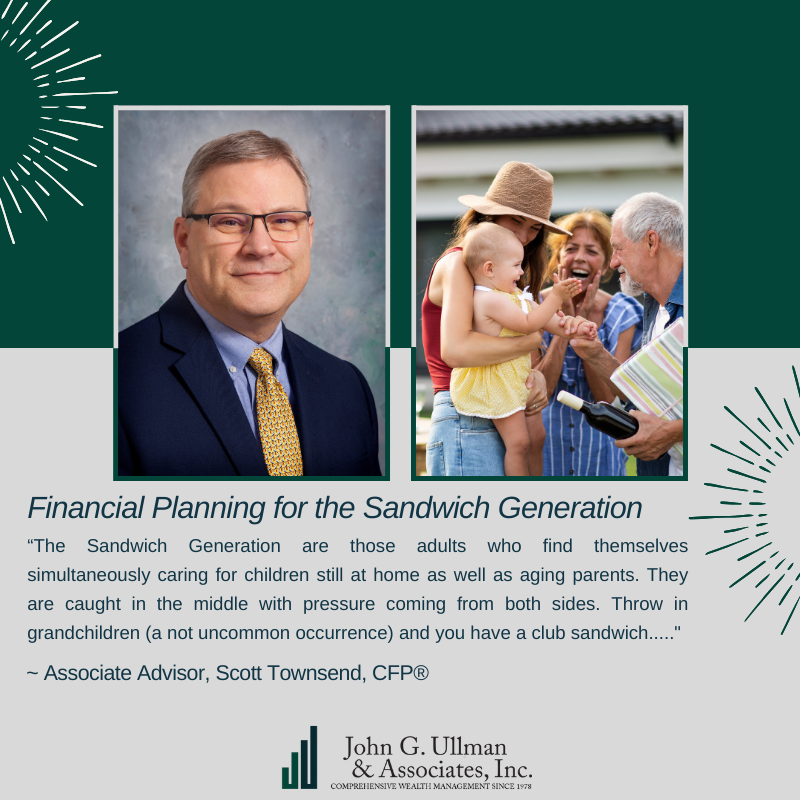I’m partial to the classic PB&J. Now mind you, it has to be freshly made (morning preparation for a noon lunch will not do, too soggy) and constructed properly, two slices of a good hearty bread with peanut butter thickly spread on both slices, and a dollop of fruit preserves in the middle (apricot is my preference). One must take care in eating such a gastronomical masterpiece. Too much squeeze and the preserves spill out and wreak havoc.
Too much pressure creates havoc for another kind of sandwich. The Sandwich Generation are those adults who find themselves simultaneously caring for children still at home as well as aging parents. They are caught in the middle with pressure coming from both sides. Throw in grandchildren (a not uncommon occurrence) and you have a club sandwich.
So how did this phenomenon come about? A quick search on Amazon.com shows over 20 books about this group. The Baby Boomers (born 1946-64) married and had children early. A couple having a baby in their early 20s would have parents in their 40s. These new grandparents still had plenty of tread left on the tires and few cares or needs. Generation X (born 1965-80) tended to delay marriage and children. The first of this generation are now in their late 50s with teenagers still at home or perhaps boomerangs (adult children who moved out but have come back home to live, sometimes bringing a spouse and children).
The primary needs of the kids are financial and guidance. They are either too young to make it on their own, or life circumstances make it difficult to function as independent adults. The parents of Gen X are in their 70s and 80s. While many do not need to rely on their children for financial support, the help they need usually involves time and labor. They need someone to take them to the doctor, listen carefully, and take notes. They may need help in the yard or cleaning the house.
People in the Sandwich Generation are typically in their years of greatest earning potential and work responsibility. They may sacrifice promotions or drop out of the work force entirely to take care of family. They may delay retirement for a few years because they need the income to support extended family. They often dip into savings or reduce 401k contributions because the money has more pressing immediate needs. Their siblings may not be involved in mom and dad’s care. Because they deeply care about their family, their emotional state can be frazzled and their resources stretched.
In this crucible of stress a trusted financial planner can be a great asset. Someone who can objectively look at the entire situation and help set priorities and establish guidelines. Someone who can tell the difference between a squeaky wheel and a potential catastrophe. Budgeting, cash flow, and retirement planning, are areas where JGUA advisors excel. We would consider it a privilege to help you on your journey through the Sandwich Generation.


